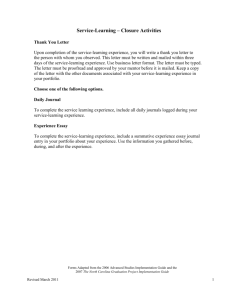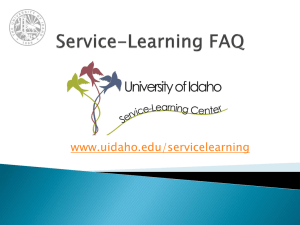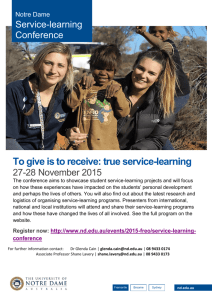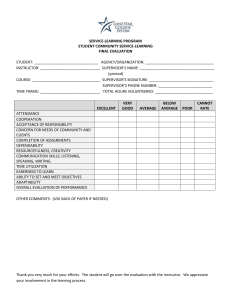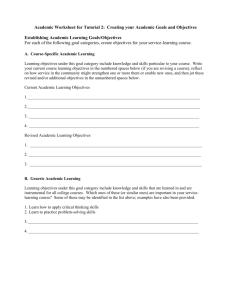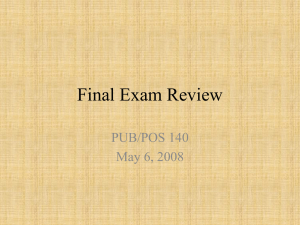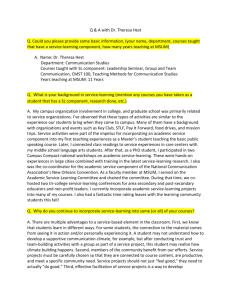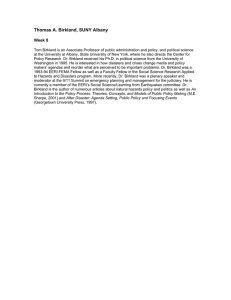political science class - Service
advertisement
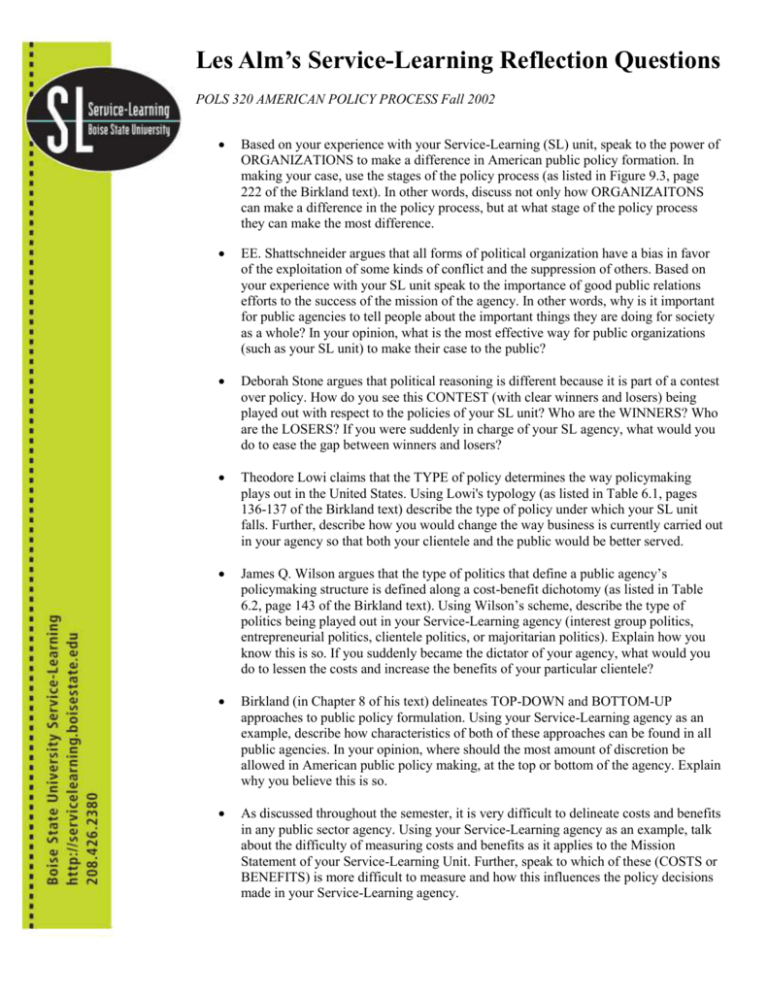
Les Alm’s Service-Learning Reflection Questions POLS 320 AMERICAN POLICY PROCESS Fall 2002 Based on your experience with your Service-Learning (SL) unit, speak to the power of ORGANIZATIONS to make a difference in American public policy formation. In making your case, use the stages of the policy process (as listed in Figure 9.3, page 222 of the Birkland text). In other words, discuss not only how ORGANIZAITONS can make a difference in the policy process, but at what stage of the policy process they can make the most difference. EE. Shattschneider argues that all forms of political organization have a bias in favor of the exploitation of some kinds of conflict and the suppression of others. Based on your experience with your SL unit speak to the importance of good public relations efforts to the success of the mission of the agency. In other words, why is it important for public agencies to tell people about the important things they are doing for society as a whole? In your opinion, what is the most effective way for public organizations (such as your SL unit) to make their case to the public? Deborah Stone argues that political reasoning is different because it is part of a contest over policy. How do you see this CONTEST (with clear winners and losers) being played out with respect to the policies of your SL unit? Who are the WINNERS? Who are the LOSERS? If you were suddenly in charge of your SL agency, what would you do to ease the gap between winners and losers? Theodore Lowi claims that the TYPE of policy determines the way policymaking plays out in the United States. Using Lowi's typology (as listed in Table 6.1, pages 136-137 of the Birkland text) describe the type of policy under which your SL unit falls. Further, describe how you would change the way business is currently carried out in your agency so that both your clientele and the public would be better served. James Q. Wilson argues that the type of politics that define a public agency’s policymaking structure is defined along a cost-benefit dichotomy (as listed in Table 6.2, page 143 of the Birkland text). Using Wilson’s scheme, describe the type of politics being played out in your Service-Learning agency (interest group politics, entrepreneurial politics, clientele politics, or majoritarian politics). Explain how you know this is so. If you suddenly became the dictator of your agency, what would you do to lessen the costs and increase the benefits of your particular clientele? Birkland (in Chapter 8 of his text) delineates TOP-DOWN and BOTTOM-UP approaches to public policy formulation. Using your Service-Learning agency as an example, describe how characteristics of both of these approaches can be found in all public agencies. In your opinion, where should the most amount of discretion be allowed in American public policy making, at the top or bottom of the agency. Explain why you believe this is so. As discussed throughout the semester, it is very difficult to delineate costs and benefits in any public sector agency. Using your Service-Learning agency as an example, talk about the difficulty of measuring costs and benefits as it applies to the Mission Statement of your Service-Learning Unit. Further, speak to which of these (COSTS or BENEFITS) is more difficult to measure and how this influences the policy decisions made in your Service-Learning agency.


